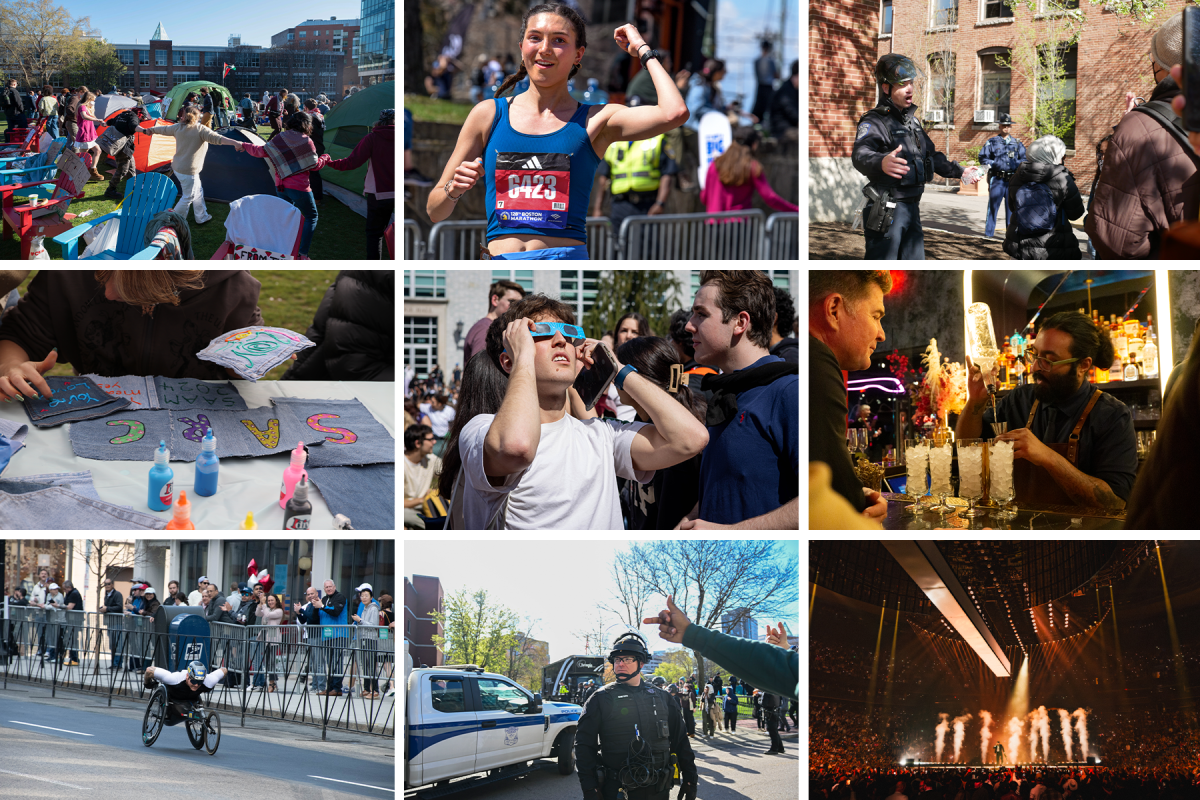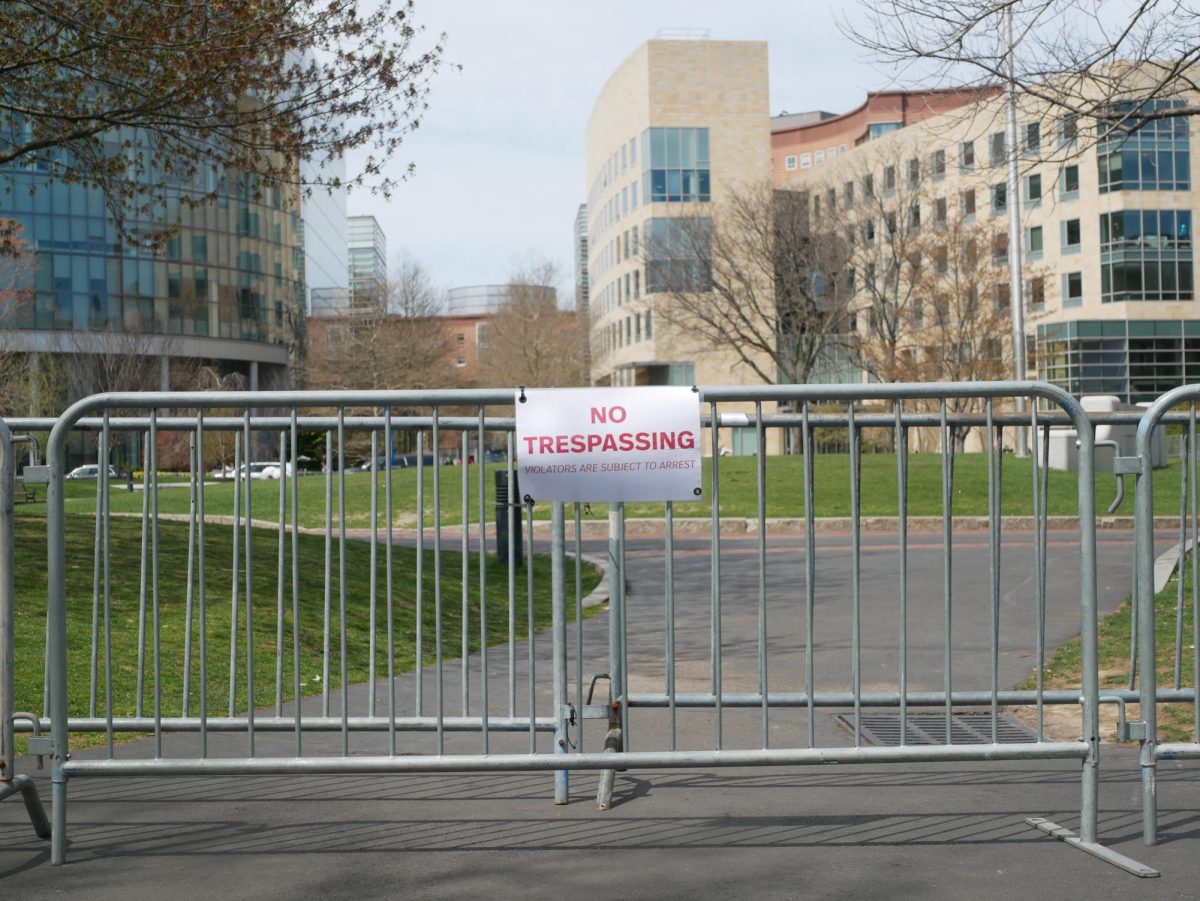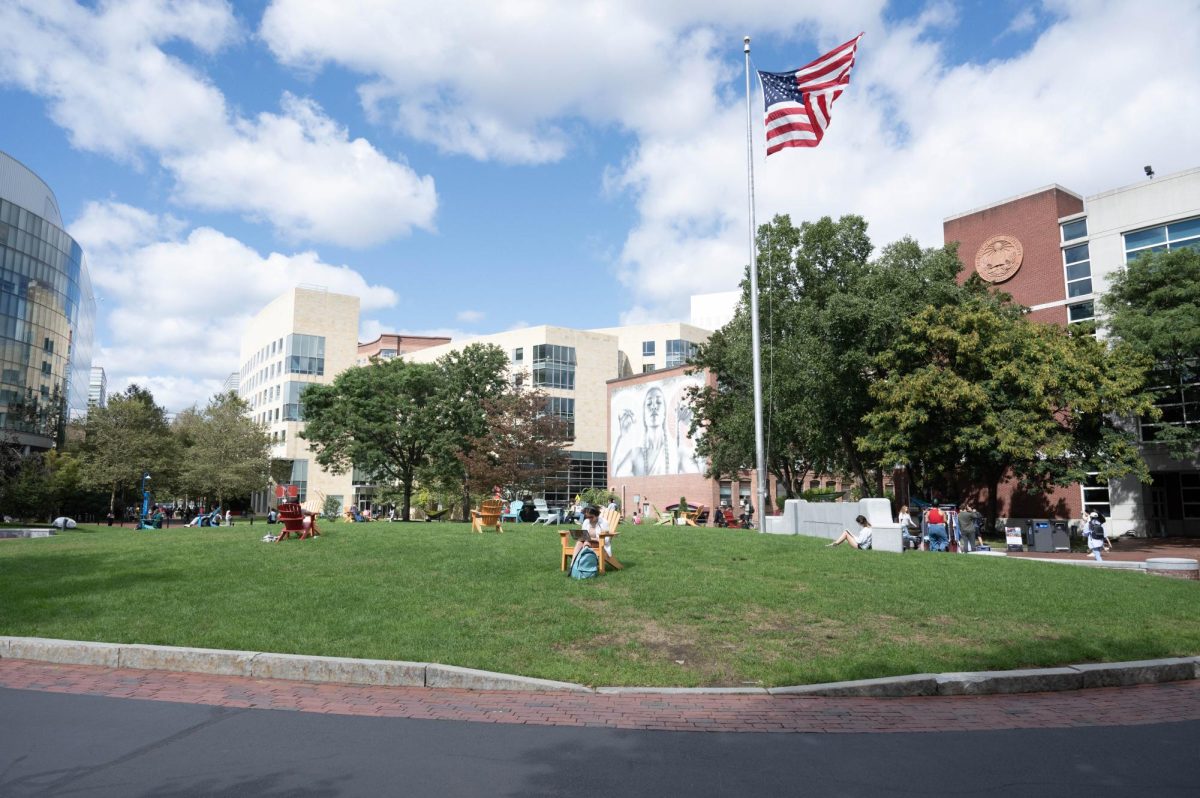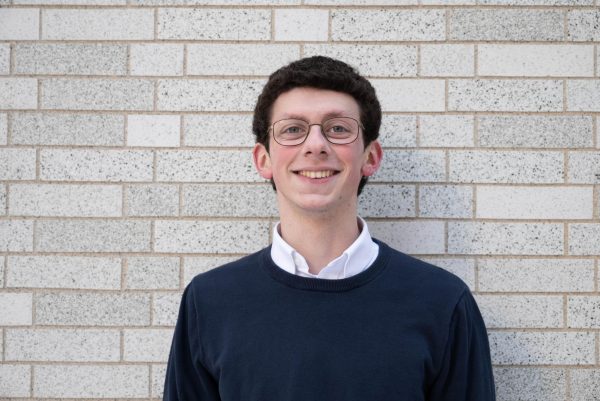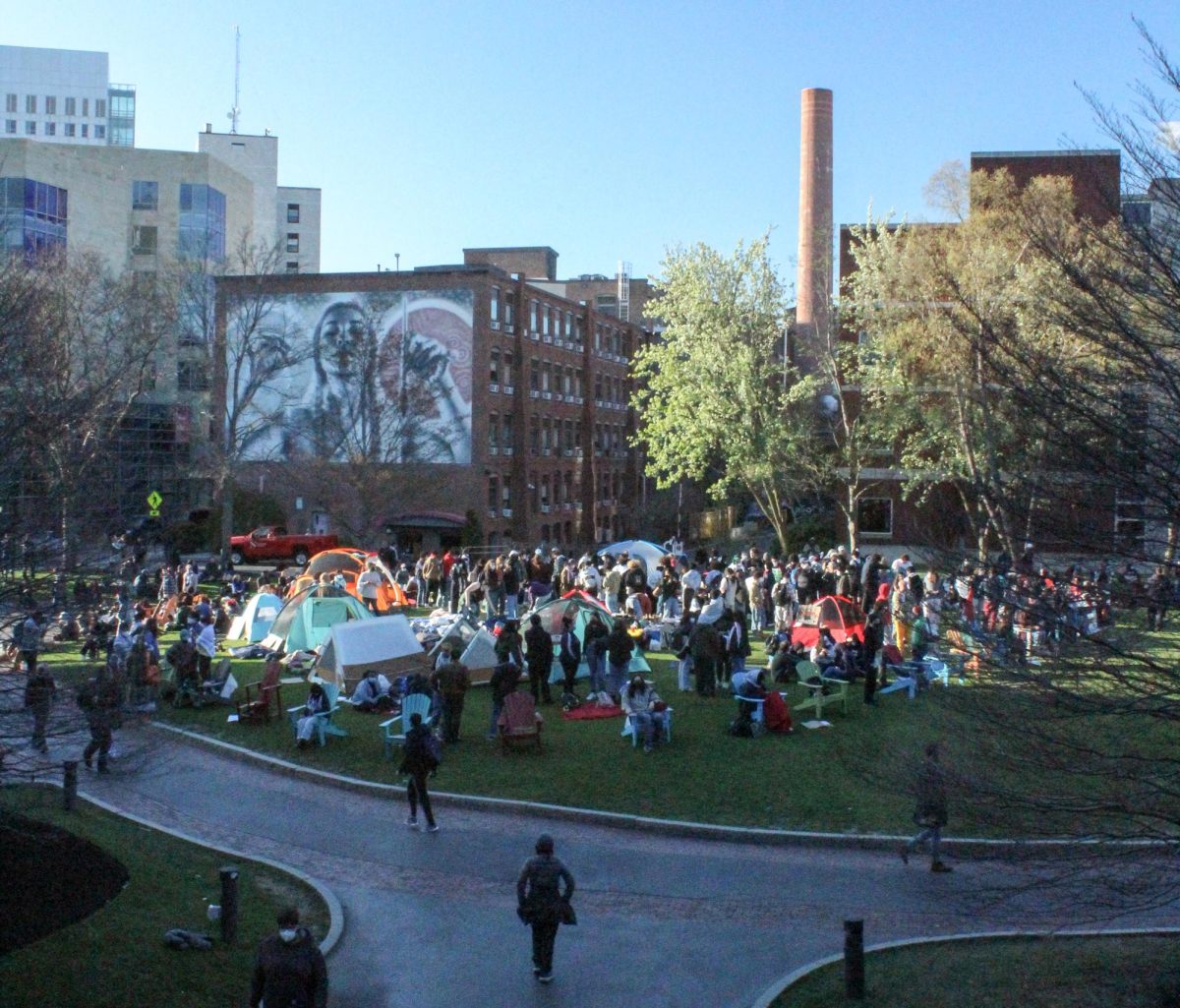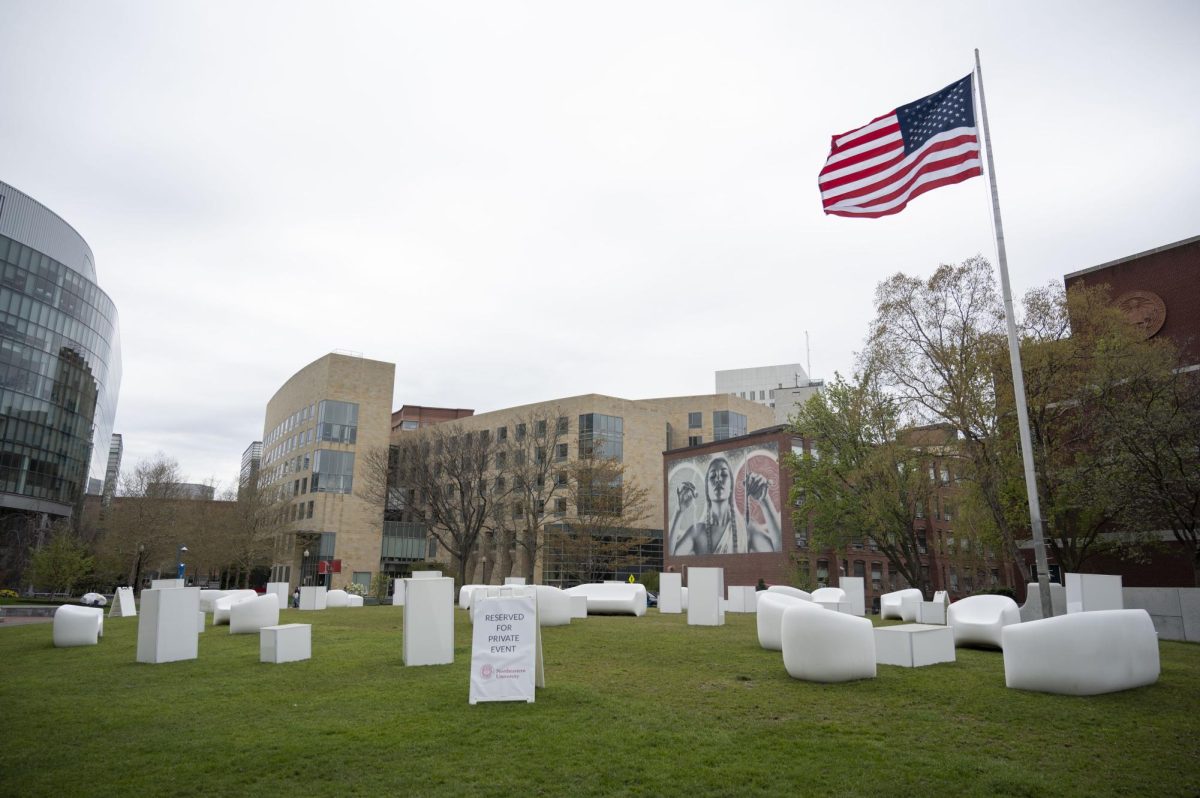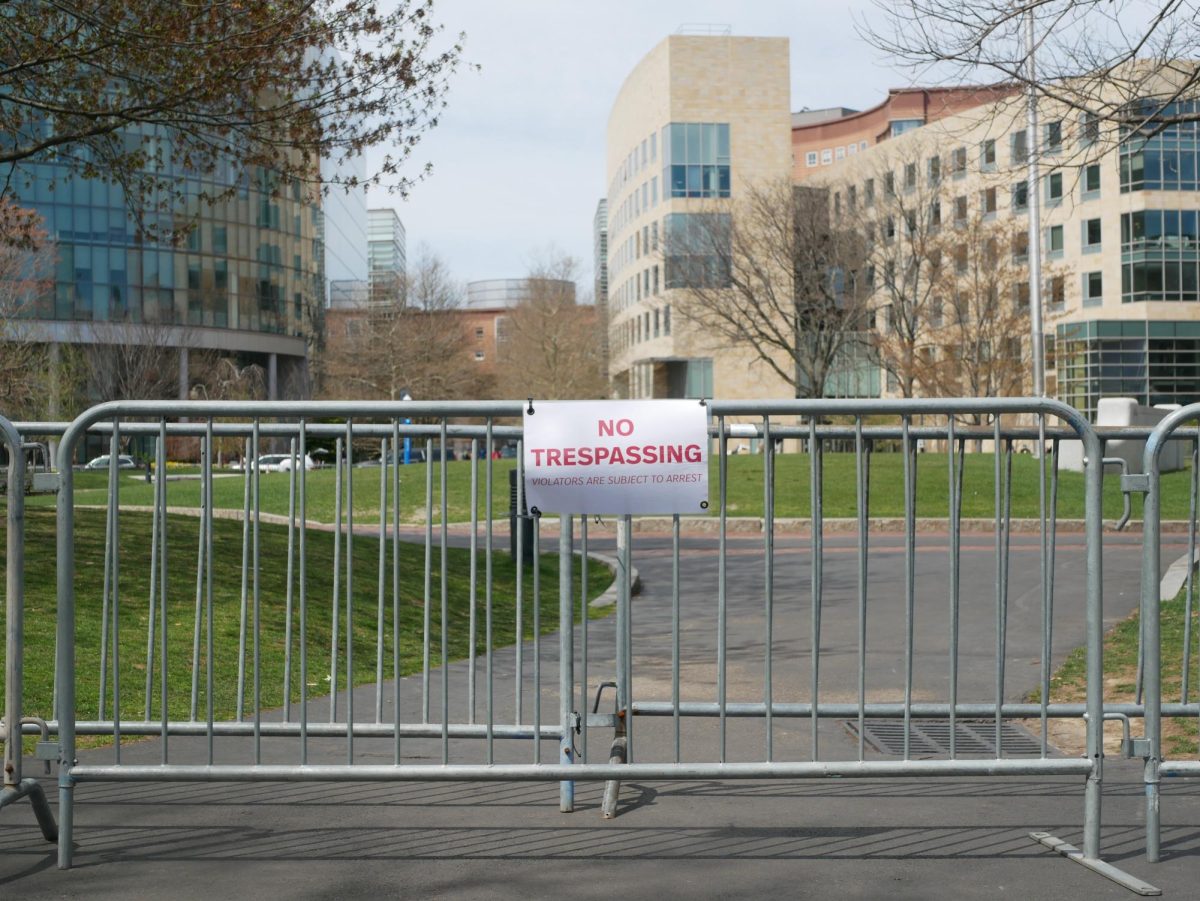On a warm day on campus, many Northeastern students can be found in hammocks, on blankets or in Adirondack chairs on the campus’ various green spaces. However, advocates say many of these areas, such as Centennial Common and the West Village Quad, do not have sufficient accommodations for mobility aids like wheelchairs.
Northeastern prides itself on inclusivity, stating on its website that it is “committed to creating a welcoming and inclusive community where individuals of all identities, backgrounds, and experiences can thrive.”
However, many students believe non-accessible green spaces on campus violate this pledge.
“I don’t think we have that many green spaces on campus to begin with, and the ones we do have are all grass for the most part,” said Emma Albert, a third-year public health major and president of the Diversability Club. Albert is a wheelchair user and said common accessibility features are often unavailable on campus. “Not having a ramp or even just [a] curb-cutout makes it very difficult for us to use [the green spaces].”
At a recent forum hosted by Northeastern’s Department of Campus Planning & Real Estate, which gathered students’ opinions on the future of the Boston campus, many requested “more accessible outdoor spaces.” For instance, while Centennial Common does have a ramp, it is not paved.
According to a study published by the National Library of Medicine in 2021, accessibility to green spaces is positively correlated with improved mental health. These areas are a great way to escape the bustling city and stress of classes, and Northeastern touts its campus within a metropolis as a “one-of-a-kind sanctuary of lush green spaces.”
“I feel like fresh air is good — go out and explore, especially if you’ve been inside the library all day,” said first-year chemistry major Annika Glitzenstein, who uses a knee scooter.
One of the few accessible green spaces on campus, the bamboo garden, is located in International Village. A sign at the entrance of the garden reads that it is open Monday through Friday from 9 a.m. to 5 p.m., but many complain that the garden is always closed. Residents are unable to enter the garden without a guard to scan them in. It is the only green space that is wheelchair-friendly because the cement floor is flat and does not feature a grassy incline.
“This is the one outdoor space with seating that I could use, but it’s not open,” Albert said.
Caroline Southard-Smith, a third-year computer science and media arts combined major, lives in a West Village residence hall and is currently using a knee scooter, after a running injury left her with a stress fracture in her foot. She enjoys spending time on West Village Quad but has been unable to due to its lack of accessibility, she said.
“You can’t really get up there unless you’re willing to pick up [your mobility aid],” Southard-Smith said.
Not only do students with disabilities find it more difficult to utilize the green spaces for relaxing, they are inherently excluded from certain events. The $163 student activity fee is a mandatory charge that helps fund campus events and undergraduate student organizations. Organizations have used those funds to bring guest artists like Carly Rae Jepsen, Beach Bunny and CupcakKe to perform on Centennial Common.
Most of the time, the temporary concert stage is set up on the pavement near the John D. O’Bryant African American Institute and the audience watches from Centennial. Those with mobility aids are not able to attend these events because the grass is shaped like a dome, preventing them from anchoring themselves.
“There’s just no way for me to access something like that, which is definitely very frustrating,” Albert said. “It would be helpful to design some green spaces that are flat”.
The Diversability Club on campus works closely with the Disability Resource Center and routinely brings up concerns with the administration. Recently, they have been in communication with the Center for Student Involvement after several members’ negative experience at Fall Fest, Albert said. It was too crowded for the club’s members to get around, and they were not given chairs, which they requested as accommodations.
The Americans with Disabilities Act, or ADA, prohibits institutions from discriminating against people with disabilities. While Northeastern does provide ADA accommodations, advocates say they may not be the most practical solution. According to students, elevators often break down, people move ADA seating arrangements in the classroom and many classrooms feature tiered seating, like lecture halls in Shillman Hall.
“We are looking into the other issues the students pointed out and are fixing them asap as appropriate,” the university said in a statement to The News.
Southard-Smith has a class on the second floor of Hastings Hall, but has been attending classes via Zoom because as far as she is aware, there is no elevator in the building that reaches her classroom.
“It’s just too much of a hassle to get friends to carry my scooter up to the second floor every single time I have to go to that class,” she said.
As Northeastern continues its mission to provide for all students, student organizations like Diversability stress that it is important that every student gets access to the resources they need to be successful.
“Once I started my freshman year I realized that there were so many barriers and challenges that I wasn’t anticipating,” Albert said. “It’s a larger systemic problem in higher education.”



